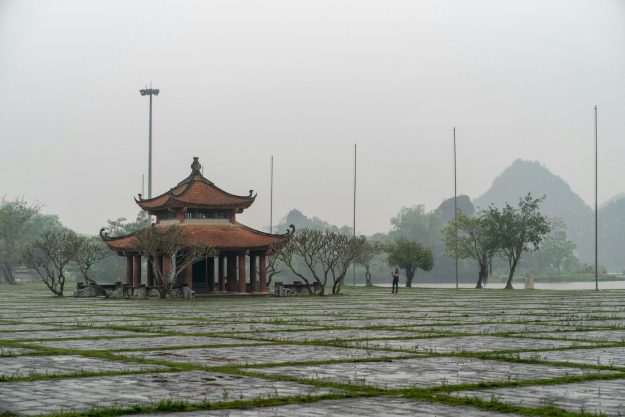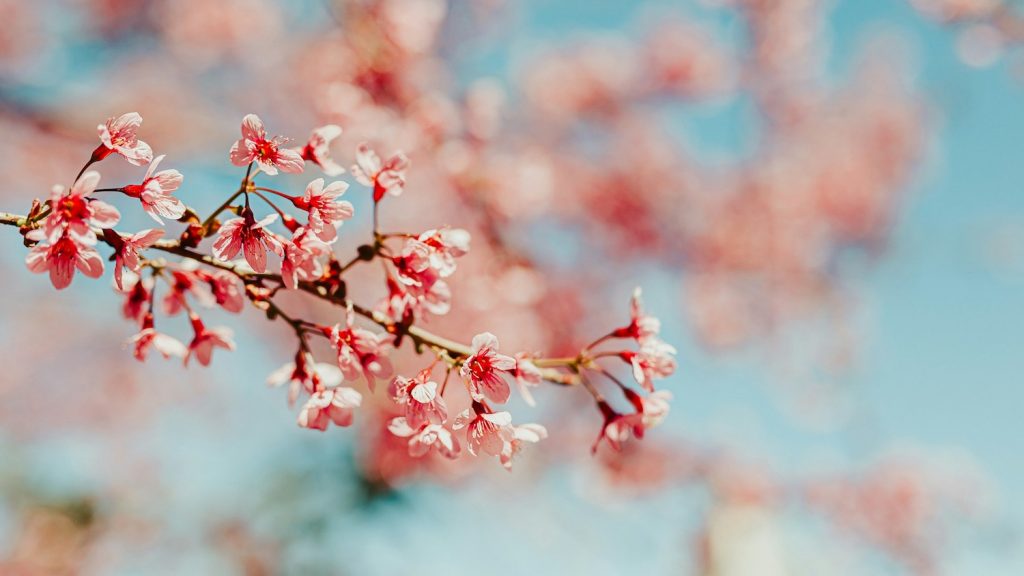Hồ Xuân Hương—her given name means “Spring Essence” or “Spring Perfume”—was born around 1780 at the end of the second Lê dynasty, a period of calamity and social disintegration. Her fame in Vietnam as a poet and cultural figure continues to this day. A concubine, although a high-ranking one, she followed Chinese classical forms in her poetry but preferred to write not in Chinese but in chữ Nôm, “the Southern Characters” that represented Vietnamese speech. And while her prosody followed traditional Chinese classical forms, her poems were anything but conventional. Whether mountain landscapes, or longings after love, or apparently about such common things as a fan, weaving, some fruit, or even a river snail, many of her poems were devilish double entendres with hidden sexual meaning albeit in a Confucian tradition of propriety that banished the nude from art. Writing about sex was unheard of. And, if this were not enough to incur disfavor in a time when impropriety was punished by the sword, she wrote poems that ridiculed the authority of the decaying Buddhist church, the feudal state, and Confucian male society. Yet, because of her stunning poetic cleverness, she and her poems survived. Young scholar-poets strived to match wits with her. Her poems were copied by hand for almost a hundred years before they finally saw a woodblock printing in 1909.
–John Balaban

Spring-Watching Pavilion
A gentle spring evening arrives
airily, unclouded by worldly dust.
Three times the bell tolls echoes like a wave.
We see heaven upside down in sad puddles.
Love’s vast sea cannot be emptied.
And springs of grace flow easily everywhere.
Where is nirvana?
Nirvana is here, nine times out of ten.
Đài khán xuân
Êm ái, chiều xuân tới khán đài
Lâng lâng chẳng bợn chút trần ai.
Ba hồi chiêu mộ chuông gầm song.
Một vũng tang thương nước lộn trời.
Bể ái nghìn trùng khôn tát cạn.
Nguồn ân muôn trượng dễ khơi vơi.
Nào nào cực lạc là đâu tá?
Cực lạc là đây, chín rõ mười.
Trấn Quốc Temple
Weeds sprout outside the royal chapel.
I ache thinking of this country’s past.
No incense swirls the Lotus Seat
curling across the king’s robes
rising and falling wave upon wave.
A bell tolls. The past fades further.
Old heroes, old deeds, where are they?
One sees only this flock of shaved heads.
Vịnh chùa Trấn Quốc
Trấn Bắc hành cung cỏ dãi dầu
Chạnh niềm cố quốc nghĩ mà đau
Một toà sen toả hơi hương ngự
Năm thức mây phong nếp áo chầu
Sóng lớp phế hưng coi vẫn dộn
Chuông hồi kim cổ lắng càng mau
Người xưa cảnh cũ đâu đâu tá
Khéo ngẩn ngơ thay lũ trọc đầu.
Autumn Landscape
Drop by drop rain slaps the banana leaves.
Praise whoever sketched this desolate scene:
the lush, dark canopies of the gnarled trees,
the long river, sliding smooth and white.
I lift my wine flask, drunk with rivers and hills.
My backpack, breathing moonlight, sags with poems.
Look, and love everyone.
Whoever sees this landscape is stunned.
Cảnh thu
Thánh thót tầu tiêu mấy hạt mưa,
Khen ai khéo vẽ cảnh tiêu sơ.
Xanh om cổ thụ tròn xoe tán,
Trắng xoá tràng giang phẳng lặng tờ.
Bầu dốc giang sơn say chấp rượu,
Túi lưng phong nguyệt nặng vì thơ.
Ơ hay, cảnh cũng ưa người nhỉ,
Ai thấy, ai mà chẳng ngẩn ngơ.
⧫
“Spring-Watching Pavilion,” “Trấn Quốc Temple,” and “Autumn Landscape,” written by Hồ Xuân Hương and translated by John Balaban. From Passing through a Gate: Poems, Essays, and Translations, copyright 2024 by John Balaban, used by permission of Copper Canyon Press, www.coppercanyonpress.org.
All recordings adapted from John Balaban translations in Passing through a Gate: Poems, Essays, and Translations. English spoken by John Balaban; Vietnamese sung by Lê Phạm Lê.
Thank you for subscribing to Tricycle! As a nonprofit, we depend on readers like you to keep Buddhist teachings and practices widely available.
